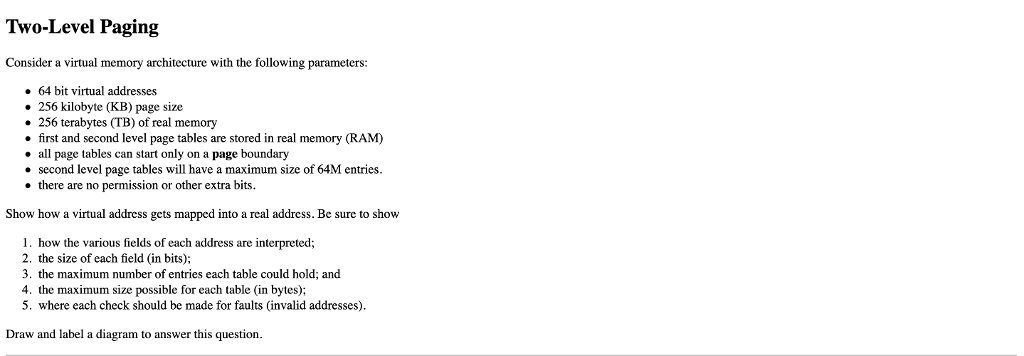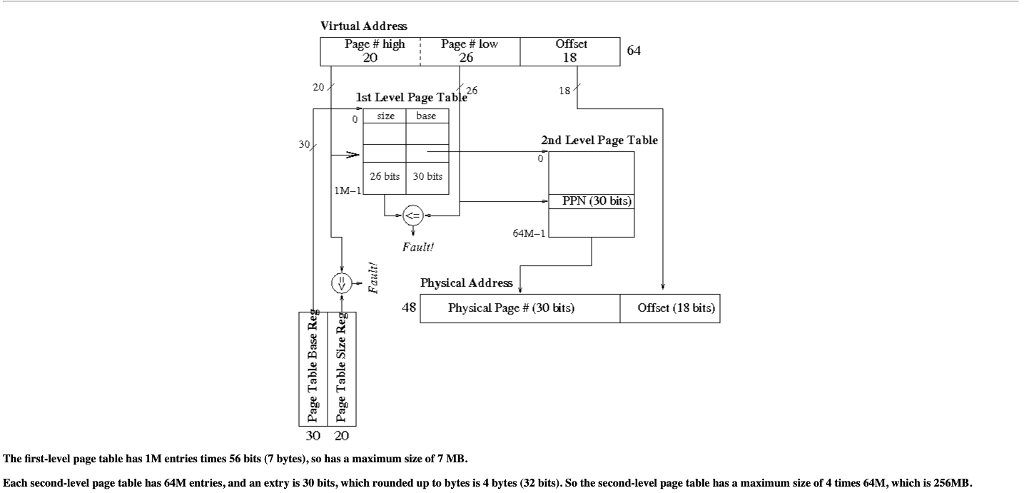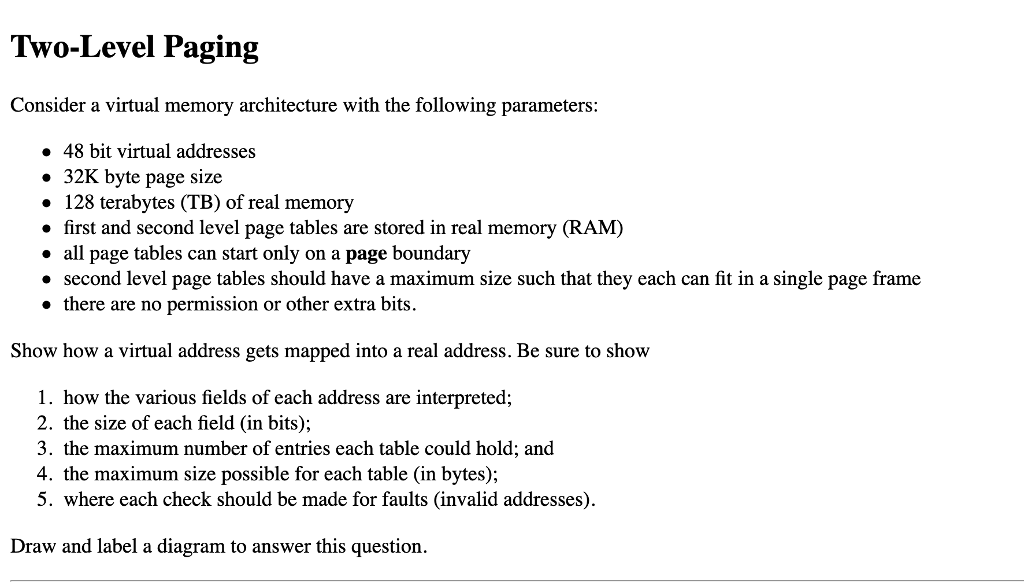Question
This is the question. This is the answer. I need a detailed explanation of the solution. How was the calculation done? If the question is
This is the question.

This is the answer.

I need a detailed explanation of the solution. How was the calculation done? If the question is modified and some other information is given how can we get the initials numbers needed to find the solution? Example the size of the page size is not given but the but the max size of 1 Mb is given. I would link to have a detailed explanation and the information I need to solve such questions.
One such variation:
Think of other variations that might appear. Also is possible add links that will help me clear my concepts

Step by Step Solution
There are 3 Steps involved in it
Step: 1

Get Instant Access to Expert-Tailored Solutions
See step-by-step solutions with expert insights and AI powered tools for academic success
Step: 2

Step: 3

Ace Your Homework with AI
Get the answers you need in no time with our AI-driven, step-by-step assistance
Get Started


